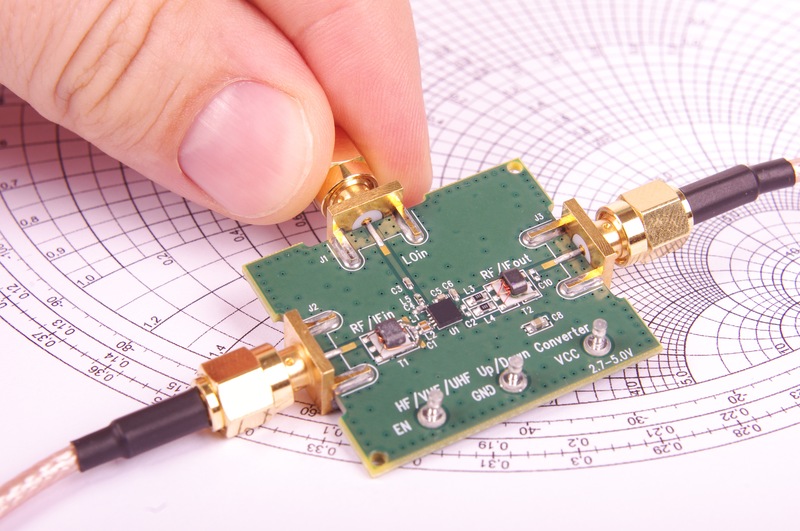
Our current era is marked by unprecedented technological development. As we stride forward, we owe our thanks to the strategic role of radio frequency (RF) engineering – as its potential continues to be acknowledged in many industries around the world. Many breakthroughs in communication, navigation, and sensing technologies are powered by RF engineering. Our current reality highlights that RF engineering represents the core of our wireless ecosystem. At the same time, that ecosystem is rapidly expanding.
We’re all constantly seeking quicker and more dependable connectivity. This shared mission is the driving force behind an upcoming generation of advancements in RF technology and solutions. There’s so much innovation to look towards – but as we dream up tomorrow’s advancements in RF engineering, it becomes crucial to consider all the challenges and opportunities that our ever-changing landscape may present.
The March Towards 5G and Beyond
The future of 5G is here, with global rollout powered by RF engineering – the behind-the-scenes force responsible for its success. While we’re growing to enjoy the benefits that this innovation offers to society, our greatest minds are already hard at work envisioning the concept of 6G and future advancements. RF engineers are confronted with the necessity of navigating higher frequencies, broader bandwidths, and increasingly complex modulation schemes to deliver the ultra-fast, highly reliable communication of the future.
These new ideas and innovations rely on manufacturing technology to bring advancements into the hands of consumers. Industry leaders like Mentis Sciences, Inc., aim to continue paving the way for the needs of our next engineering challenges.
Internet of Things (IoT) and RF Engineering
Today, more and more devices are connected to the Internet of Things (IoT). Within this area of exponential growth, RF engineering takes center stage. In the future, RF engineering will witness the creation of Low Power Wide Area Network (LPWAN) technologies. At the same time, there is a greater need for robust security protocols to guard these interconnected devices from cyberattacks. Durable and adaptable composite materials could play a key role in enhancing transmission capabilities that will revolutionize RF engineering.
Advanced Materials and Manufacturing Technologies
Multifunctional composite materials may play a pivotal role in these and many other advancements in the future of RF engineering. Materials such as those engineered by Mentis Sciences, Inc., offer both a robust structure and unique electrical properties. What might this mean? Well, these features could represent superior signal transmission and resilience – especially in harsh environments.
There are many emerging manufacturing technologies, and these may change the landscape of RF component production. Multi-axis fiber placement machines and high-tension filament winding are two technologies set to drive a transformative shift in the field – meaning greater efficiency and costeffectiveness. The future of growth and success in RF engineering begins here!
RF Engineering in Satellite and Space Communications
Our skies are busier than ever before. If we look to space, we are seeing an ever-increasing number of satellites being launched – and RF engineering is key to maintaining and even enhancing the communications needed between these satellites and Earth.
RF engineering principles are entwined with the science of advanced composites – which are found in high temperature missile radomes, structural bulk absorbers, and thermal protection systems. The intersection of RF engineering and composite materials is clear – and this key area will be set to impact dependable and efficient communication as we delve further into space.
The Integration of AI and Machine Learning in RF Engineering
Today, everyone is talking about the new and exciting advancements in Artificial Intelligence (AI) and Machine Learning. So, how will these new technologies impact RF engineering? The impact cannot be overstated – as complex RF systems on the rise will rely on these advanced tools to optimize system performance, detect faults, and even predict future behaviors.
AI-driven RF engineering will undoubtedly become a growing field, leading to greater reliability and efficiency – as well as adaptability – in our systems. A bright and innovative future is on the way!
Innovation, evolution, and discovery – all of this awaits the future of RF engineering. As we continue to see expansions in wireless networks, IoT devices, advanced composite materials, satellite technology, and the integration of AI and machine learn, we continue to watch this dynamic field grow and change.
Companies like Mentis Sciences, Inc., aim to spearhead these advancements, driving our future forward into an ever-connected world. We’re excited to forge ahead into our technological future!